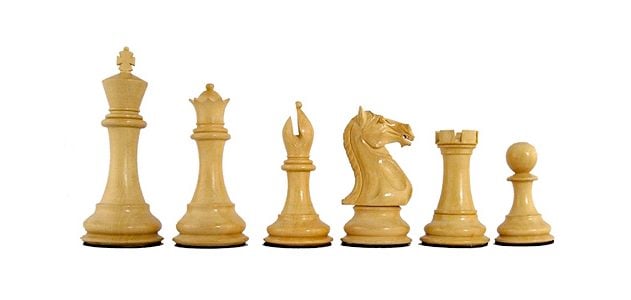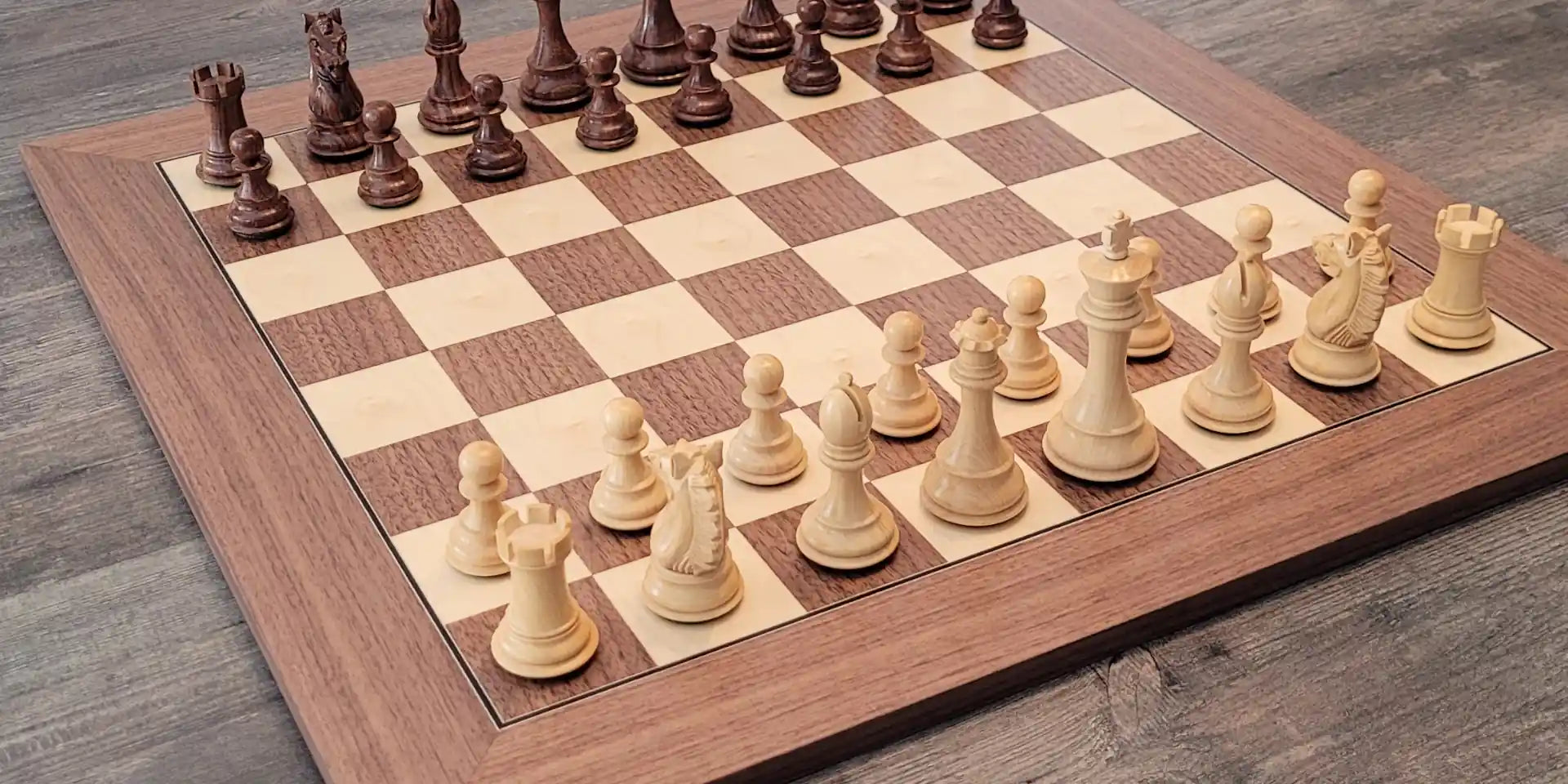Understanding the Chess 64-Square Battlefield and Piece Movements
Wiki Article
Why You Should Play Chess: The Advantages of Participating In This Classic Pundit Challenge
Chess is greater than a basic video game; it offers as a strenuous mental exercise that develops numerous cognitive abilities. Gamers engage in strategic reasoning and create analytical capabilities, which can have long lasting benefits in everyday life. The self-control needed for enhancement cultivates patience and resilience. Yet, real significance of chess lies not just in its intellectual demands but in the connections it promotes within a neighborhood. Checking out these dimensions exposes much regarding why chess stays ageless.Enhancing Cognitive Skills
Playing chess substantially improves cognitive abilities, making it an important task for individuals of all ages. The video game needs calculated reasoning and foresight, calling for gamers to expect their opponent's moves while formulating a winning method. This psychological exercise hones focus and focus, important parts of cognitive function.
Furthermore, chess motivates imagination, motivating players to check out cutting-edge strategies and unique strategies to the video game. As they browse the chessboard, individuals develop perseverance and strength, vital attributes for cognitive growth. Overall, the multifaceted cognitive benefits of chess make it an enhancing quest, advertising lifelong mental agility and intellectual interaction.
Enhancing Problem-Solving Abilities
Various researches have revealed that participating in chess can significantly increase analytic capabilities. The game calls for gamers to evaluate complex placements and prepare for the opponent's relocations, cultivating crucial assuming skills. As they browse different situations, chess players create the capability to review several end results and make calculated choices under stress. This process enhances their capability to method real-life troubles with an organized frame of mind.Chess promotes the recognition of patterns and the application of rational reasoning, abilities that are vital in effective analytical. Gamers find out to assess threats and rewards, fine-tuning their judgment in unpredictable situations. The repetitive nature of chess play enhances these abilities, enabling individuals to transfer their enhanced analytic capabilities to academic and expert contexts. Eventually, chess acts as an important tool for any person looking for to develop their analytical skills and boost their general cognitive performance in difficult situations.
Cultivating Persistence and Self-control
While participating in chess can be an amazing experience, it likewise calls for a substantial degree of perseverance and self-control. Gamers should learn to carefully think about each action, evaluating potential outcomes and approaches. This thoughtful technique fosters a frame of mind that values lasting success over immediate satisfaction. In chess, rash choices commonly cause unfavorable repercussions, enhancing the significance of taking one's time to examine the board and anticipate a challenger's actions.
Discipline is additional grown via regular practice and research study. Gamers commonly commit hours to improving their skills, researching techniques, and reviewing past games. This dedication to grasping the game instills a sense of responsibility and determination, essential characteristics that expand past the chessboard. Ultimately, the mix of patience and self-control not just improves a gamer's chess abilities but likewise adds to personal growth, outfitting individuals with essential devices for steering difficulties in different facets of life.
Cultivating Creativity and Imagination

Planning steps entails not simply logic but also the ability to prepare for an opponent's feedbacks, encouraging players to visualize numerous pathways and alternatives. As players trying out different strategies, they find out to innovate and adapt, boosting their imaginative analytical skills.
The video game's intricacy welcomes players to explore non-traditional ideas and methods, leading to individual styles of play - Chess. This exploration nurtures a feeling of artistic expression, as each gamer crafts their very own strategy to difficulties on the board. Ultimately, chess comes to be a canvas for creativity, allowing individuals to express their special perspectives while developing their imaginative capacities
Structure Social Connections and Community
Playing chess uses chances for people to network with events and local chess clubs. These atmospheres promote links amongst players, producing a feeling of recreation center around a common enthusiasm. Participating in these activities not only enhances skills but also constructs long-term partnerships.Networking Through Tournaments
When participants engage in chess events, they typically find themselves engaged in a dynamic area of like-minded individuals. These occasions supply an excellent platform for gamers to forge links, share strategies, and commemorate their enthusiasm for the video game. Participating in pleasant competition promotes friendship, as gamers from diverse histories collaborated to test each other. Networking chances are plentiful, with numerous participants forming long-term relationships that extend beyond the chessboard. Additionally, these competitions usually draw in enrollers and chess fanatics, additionally improving the read here possibility for specialist connections. As gamers engage in discussions regarding tactics and experiences, they build a network that can lead to future collaborations and opportunities within the chess world and beyond.Local Chess Clubs

Giving a Fun and Engaging Difficulty
Chess provides an uniquely stimulating experience that captivates players of every ages, as it combines calculated reasoning with the thrill of competitors. This ageless video game provides a compelling difficulty, urging individuals to believe seriously and artistically. Each match unfolds as a battle of Read More Here wits, where players must anticipate their opponent's actions while creating their own techniques.The intellectual interaction chess offers is matched by its ability to entertain. Gamers typically locate themselves submersed in the video game, shedding track of time as they browse intricate positions and tactical problems (Chess). This heightened emphasis fosters a sense of achievement, specifically when a difficult action results in victory
Moreover, chess promotes social interaction, enabling gamers to bond over common experiences and difficulties. The video game's endless variants ensure that no two sessions are alike, maintaining individuals passionate to improve their skills click for source and methods. This dynamic blend of difficulty and pleasure makes chess a tempting search.
Regularly Asked Concerns
Can Chess Be Played Online or Only personally?
Chess can be played both online and in individual. On-line systems supply players the comfort of completing versus opponents worldwide, while in-person games promote social interaction and physical presence, improving the total experience.What Age Is Ideal to Start Knowing Chess?
Experts recommend that youngsters can begin discovering chess as very early as age five or 6. At this age, they can understand basic principles, improving cognitive abilities while cultivating a love for the game that lasts a life time.Exist Chess Tournaments for Beginners?
Yes, there are chess competitions particularly created for beginners. These occasions give an encouraging atmosphere for beginner players to gain experience, improve their skills, and delight in the competitive spirit of chess without dealing with advanced opponents.The length of time Does It Take to Become Skilled at Chess?
Coming to be proficient at chess normally calls for consistent practice over numerous months to years. Factors such as specific devotion, previous experience, and research study of approaches greatly affect the time required to reach a competent degree.What Resources Are Readily Available for Understanding Chess Approaches?
Many sources exist for learning chess techniques, consisting of on the internet tutorials, publications by renowned authors, chess apps, and interactive websites. Many players also gain from signing up with local clubs or taking part in on-line forums for real-time insights.Report this wiki page